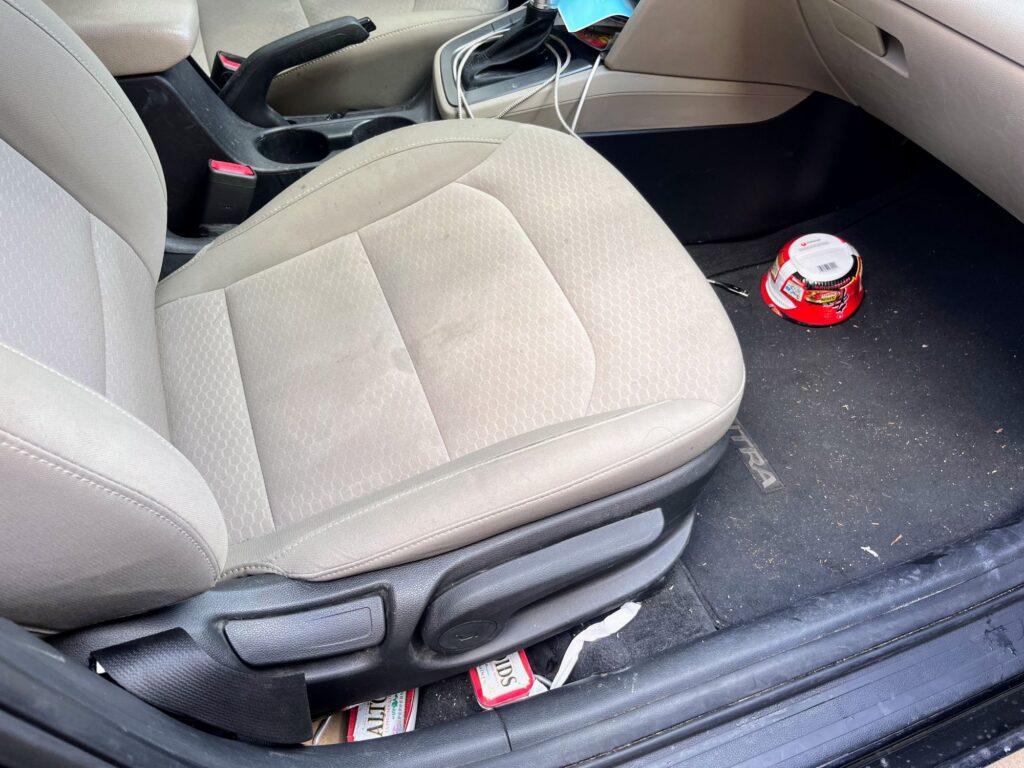Have you ever let your car go too long without a wash, thinking it’s no big deal? Many people don’t realize that a dirty car isn’t just an eyesore—it can lead to real problems. From damaging your paint to creating safety hazards, neglecting to clean your car can cost you more than you think. In this post, we’ll go over the biggest issues a dirty car can cause and why keeping it clean is about more than just looks.
Why You Won’t See Dirty Cars in Japan

During my 48-day pilgrimage to the 88 temples around Shikoku Island, I was amazed by how clean everything was. Japan is known for its cleanliness, but what surprised me the most was how spotless the cars were. Even big trucks looked freshly washed.
Most people in Japan don’t have garages. They park their cars on the streets or, if lucky, under a carport. Yet, their cars still looked brand new. I started wondering how they kept them so clean.
Then, I found out the secret—gas stations! In Japan, many gas stations offer hand car washes as part of their service. It’s included when people stop to fill up their tanks. Some stations also clean windshields, mirrors, and even empty ashtrays for free. They sometimes provide wet wipes for the dashboard too.
Self-service car washes are also common, making it easy for drivers to keep their cars looking great. This habit helps prevent problems caused by dirty cars, like paint damage or safety hazards.
Seeing this firsthand made me realize how much Japanese culture values cleanliness. It’s not just about keeping homes and streets tidy—it’s part of everyday life, even for cars!
Why Are Some Cars So Dirty?

It’s common to see dirty cars on the road in the U.S. Many drivers have busy schedules, and washing their cars isn’t a priority. Unlike in Japan, where gas stations often include hand car washes, most U.S. stations only offer fuel. This means car owners must take time out of their day or pay extra for a wash, which many choose to skip.
Weather also plays a big role in why so many cars stay dirty. In snowy areas, road salt sticks to vehicles, leading to rust if not cleaned off. In dry and dusty regions, dirt builds up quickly, but many people don’t see it as a problem. Even rain doesn’t always help, as it often leaves water spots and streaks.
Cultural habits also make a difference. In Japan, cleanliness is highly valued, and people take extra care to keep their cars spotless. In the U.S., there is less social pressure to keep a car clean. Since a dirty car still runs fine, some drivers don’t see it as a problem.
Why is it a Problem?
Many people don’t think twice about driving a dirty car. It might seem harmless, but over time, it can cause problems that go beyond just looking messy.
1. Dirt Can Damage Your Car’s Paint
A dirty car isn’t just a cosmetic issue—the real problem is how it can damage your paint over time. Dust and dirt act like sandpaper, scratching the surface every time you touch or wipe it.
Bird droppings and tree sap can also eat away at the paint, leaving stains that are hard to remove. If left unwashed, this damage can lead to rust, which is expensive to fix.
2. Dirty Windows and Mirrors Make Driving Unsafe
Driving with dirty windows, mirrors, and headlights is a safety hazard. Dust and grime can reduce visibility, making it harder to see the road, especially at night or in bad weather.
Dirty headlights also don’t shine as brightly, increasing the risk of accidents. Keeping your car clean helps ensure you have a clear view while driving.
3. A Dirty Interior Can Make You Sick

The outside of a dirty car isn’t the only problem—what’s inside matters too. A car’s interior collects dust, food crumbs, and bacteria, creating health risks over time. Over time, germs and mold can build up, causing allergies or bad smells. The steering wheel alone can be dirtier than a toilet seat!
4. Dirt Can Affect Car Performance
Keeping your car dirty doesn’t just affect its appearance; it can also impact its performance. If dirt and mud build up on the tires, they can lose traction, making it harder to drive safely.
A dirty engine can also lead to overheating and mechanical problems, reducing your car’s lifespan.
5. It Can Lower Your Car’s Value
If you plan to sell or trade in your car, neglecting its cleanliness can lower its value. Scratched paint, stained seats, and built-up grime make it look older and poorly maintained.
As a result, buyers are less likely to pay top dollar for a car that appears neglected. Keeping it clean ensures it looks well cared for and retains its value.
The Real Problem With Driving a Dirty Car
Driving a dirty car might not seem like a big deal, but over time, it can lead to more than just a dull appearance. It often reflects a pattern of neglect—something many of us don’t realize. A dusty interior or cluttered space can affect how we feel behind the wheel and even impact how others perceive us.
In the end, keeping a car clean is about more than just looks. It’s a reflection of how we care for the things we depend on daily. Choosing to stay on top of small, simple habits can prevent long-term wear and tear. It also creates a more enjoyable driving experience—for both you and your vehicle.














